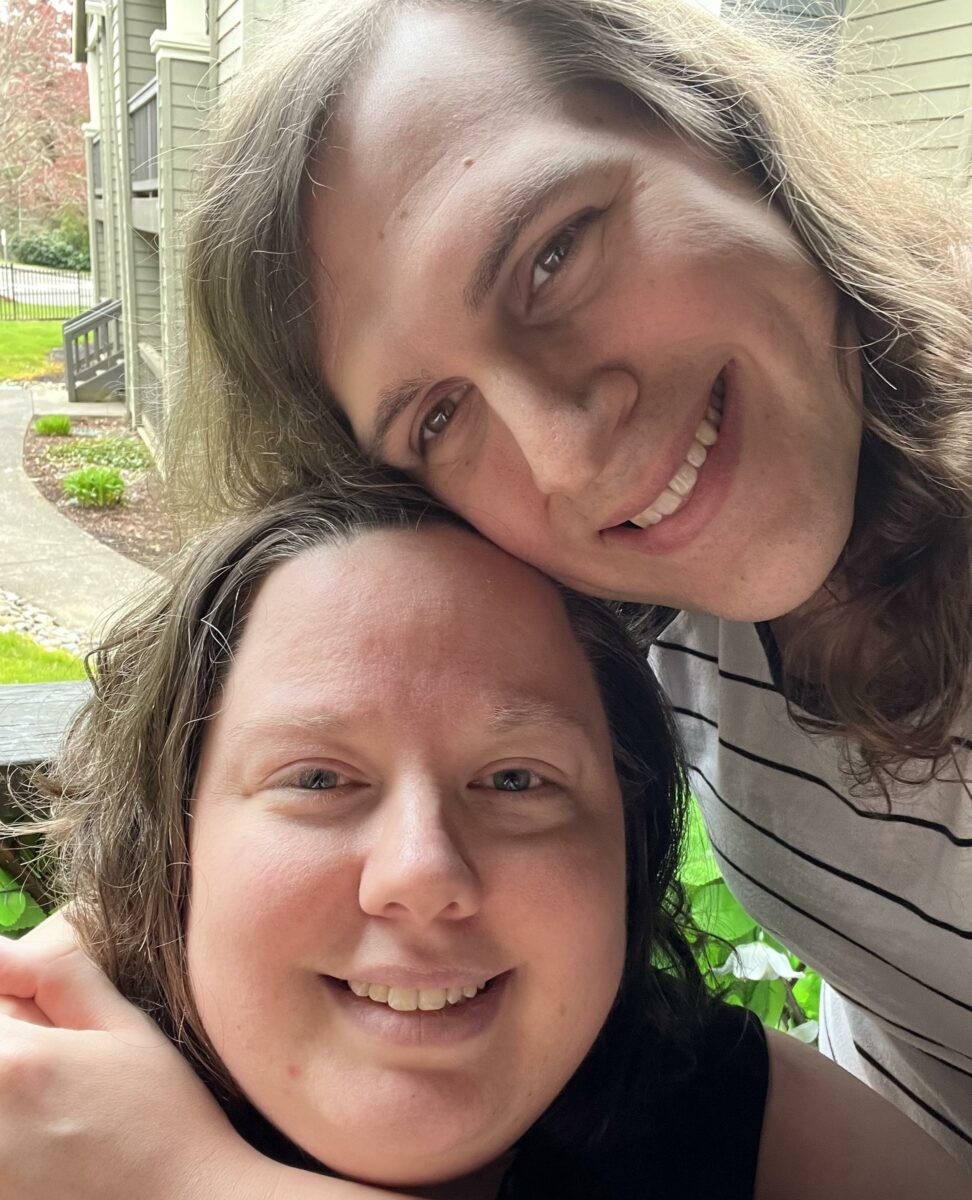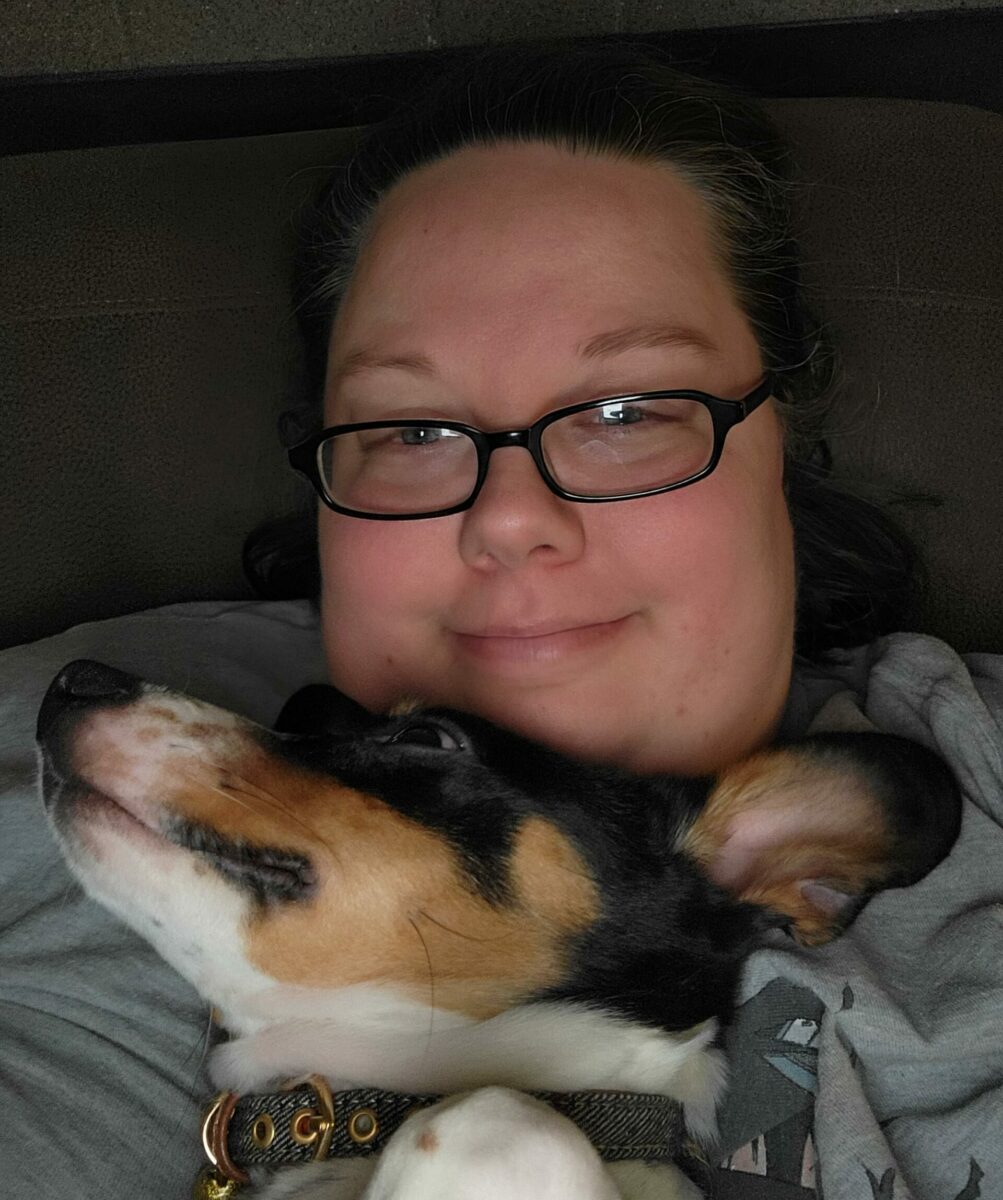April is National Autism Awareness Month! In celebration and recognition of this, we are honored to share the story of our very own Katy Mays. We hope her insights and perspectives will inspire and help foster greater understanding and empathy for individuals with autism and other members of the neurodivergent community!
*******
 Katy is a Customer Support Assistant and team leader at Thrive who has made remarkable achievements throughout her career. Her journey began ten years ago when she stumbled upon a job in property management as a Community Manager. In her very first year, she displayed an exceptional talent for the role, driving revenue up by 13% and transforming a rundown mom-and-pop community into a thriving one, earning it a growing number of 5-star reviews. Her passion for customer service and ability to bring about positive change has driven her constant desire to grow and succeed.
Katy is a Customer Support Assistant and team leader at Thrive who has made remarkable achievements throughout her career. Her journey began ten years ago when she stumbled upon a job in property management as a Community Manager. In her very first year, she displayed an exceptional talent for the role, driving revenue up by 13% and transforming a rundown mom-and-pop community into a thriving one, earning it a growing number of 5-star reviews. Her passion for customer service and ability to bring about positive change has driven her constant desire to grow and succeed.
As her career progressed, her teams got bigger and her communities more challenging. Katy began to realize that she reacted to some situations differently than those around her and often struggled to understand the subtleties of human expression. The feeling of being different had always been with her as a child, but as an adult, it became more pronounced and began to affect her work. Despite her desire and drive to succeed, Katy found herself constantly battling an unknown deviation that threatened to overwhelm her.
“Looking back on my life, I can see it now,” Katy shared. Three years ago, she discovered that the unknown deviation was autism. It wasn’t until she met her partner, who is also autistic, that she began to see the similarities between their minds and outlooks on life. Suddenly, everything started to make sense.
The CDC defines autism as a developmental disability caused by differences in the brain. Every person with autism is unique, and how they behave, communicate, interact and learn can differ significantly from most people – even though there is often nothing about how they look that sets them apart. The abilities of people with autism can vary widely; while some may have advanced conversation skills, others may be nonverbal. Some may need a lot of help in their daily lives, while others can work and live with little to no support.
“It’s different for everyone,” Katy explained. “I’m more literal and more trusting than other people. I don’t really get subtleties and sarcasm. Body language is also a real challenge for me. Unless someone says exactly what they mean, I might not get it.”
Difficulty with social communication and interaction is one of the first and most common signs or symptoms of autism. These characteristics can make daily life especially challenging. For Katy, this is where ‘Lisa’ comes in. “Lisa is my camouflage,” she revealed. “I created her as a kind of costume I can put on in situations where I need to be ‘like everyone else.'” Lisa is an alternate persona for Katy who became particularly useful in her role as a Community Manager, where social interaction is crucial.
“Lisa is the extroverted one of the two of us,” Katy chuckled. “She’s the first one to greet customers and offer assistance. She’ll ask about your day and offer advice, just chit-chat in the hallway for a few minutes. I’m definitely more introverted. I’m perfectly happy to quietly work through the day, play video games when I get home, and head to bed early. But I needed Lisa to be successful in the job I loved.”
People with autism often feel like they have to hide their true selves in order to fit into the neurotypical world. This coping technique, called “masking, ” often involves concealing their social difficulties. “It is emotionally and physically exhausting to try to pass as a typical employee. It’s stressful, for sure,” shared Katy.
“Imagine a beautiful candelabra with multiple arms,” Katy continued. “You can spread the flame from one candle to another, keeping a nice steady soft light. That’s what I imagine a neurotypical person is like – their thoughts flicker here and there, but there’s a stable glow. For me, I’m more like a series of flashbangs! You get one intense, overwhelming explosion of light, but then you need to keep lighting new ones over and over again, or the light is gone in an instant. That’s what my mind is like when I’m masking – it’s exhausting.”
While the idea of masking may not be unique to just autism, it is particularly prevalent among individuals with autism because the condition is still widely misunderstood by the public. Many people diagnosed with autism learn to mimic typical behavior to avoid being singled out or ridiculed. This can lead to individuals with autism hiding their true selves and feeling like they must constantly present a certain image to avoid potential rejection.
Unfortunately, the public’s understanding of autism is often limited and based on stereotypes. Many people still believe that all autistic people are nonverbal, lack empathy, or have a special “gift.” In reality, autism is a complex and varied condition that affects everyone differently. Some people with autism struggle with sensory processing or social communication, while others may excel in certain areas like pattern recognition or problem-solving.
 “My autism does give me some advantages, I think. I am extremely skilled at multitasking. I can work on multiple reports, play with my dog and watch TV all at the same time, never losing focus on each task. I’ve gotten pretty good at hacking my own brain,” Katy explained. It’s important to recognize the diversity within the autistic community and avoid making assumptions about someone’s abilities or challenges based on their diagnosis.
“My autism does give me some advantages, I think. I am extremely skilled at multitasking. I can work on multiple reports, play with my dog and watch TV all at the same time, never losing focus on each task. I’ve gotten pretty good at hacking my own brain,” Katy explained. It’s important to recognize the diversity within the autistic community and avoid making assumptions about someone’s abilities or challenges based on their diagnosis.
So, how can workplaces support and accommodate individuals who are neurodivergent? Katy gave us some great examples:
- Creating designated sensory rooms/spaces to offer respite from intensely stressful office environments
- Allowing headphones at work to help muffle potentially overwhelming noises and to assist with focus and relaxation
- Providing proactive reminders and support in taking allotted 10-minute breaks per day to reset and restore energy
“I love these ideas,” said Brittany Flajole, Thrive’s Vice President of Human Resources. “I would happily encourage people to start here. But, if an accommodation is needed, notifying HR should be your very first step!”
Another way to support neurodivergent employees is to provide neurodiversity training. At Thrive, we offer such training to our leadership team and managers. This is essential to help to dispel common misconceptions about autism and other conditions, promoting a more inclusive workplace. Training can also help employees to recognize and appreciate the strengths that neurodivergent individuals can bring to the workplace.
Katy’s story is one of many that highlights the challenges that many autistic and neurodivergent people face in navigating the neurotypical world. “I don’t want to be the protagonist here,” Katy expressed. “But autism and neurodiversity should be talked about!” By encouraging discussion and promoting acceptance, all workplaces can support and empower all employees, regardless of their neurotype.
“I volunteered to tell my story to clear up some misconceptions about neurodiversity and educate our community about autism,” Katy continued. “I’m happy to do it. I’ll always give back to Thrive after they’ve done so much for me!”
We’re so proud to have you on Team Thrive, Katy. Thank you for sharing your incredible story!
